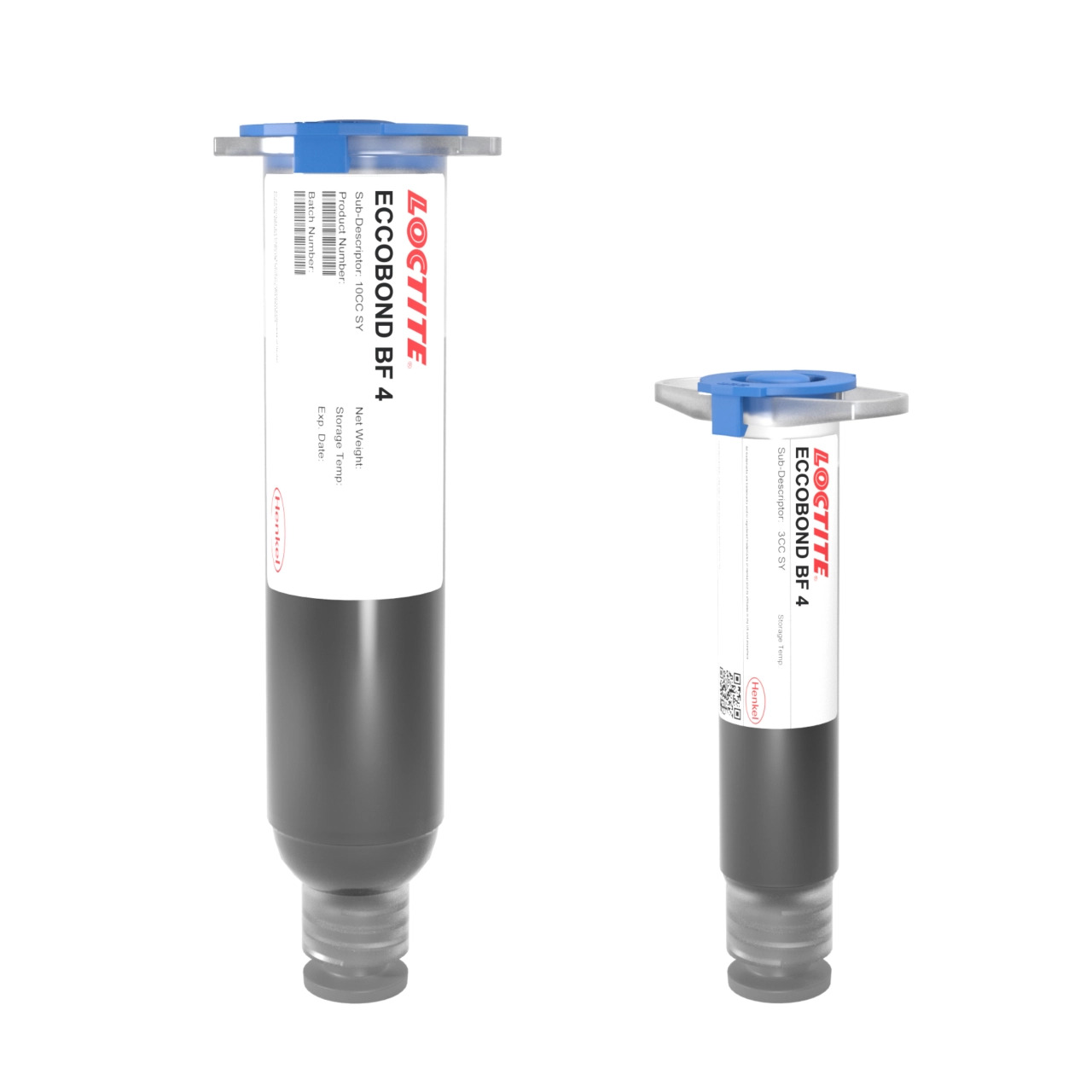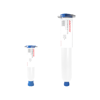LOCTITE ECCOBOND LUX AA50T
Harmonization Code : 3907.30.00.90 | Polyacetals, other polyethers and epoxide resins, in primary forms; polycarbonates, alkyd resins, polyallyl esters and other polyesters, in primary forms : Epoxide resins : Other
Main features
- Fast light cure
- White opaque
- LED mounting and optoelectronics
Product Description
LOCTITE ECCOBOND LUX AA50T die attach adhesive is formulated to enhance productivity in the assembly of optical, fiber optic and optoelectronic devices. This adhesive cures in seconds when exposed to the appropriate intensity of visible (blue) or UV light. It also contains a secondary thermal cure mechanism for applications with shadowed areas.
LOCTITE ECCOBOND LUX AA50T is a high viscosity acrylate that cures fast with UV or visible light. It offers good mechanical stability and low shrinkage. This white opaque die attach material is typically used for optoelectronics devices, LED mounting, laser diode packaging, fiber pigtailing and transceiver active alignment and potting.
UV Cure
- UV or visible light
Secondary Thermal Cure
- 1 hour @ 100°C
Technical Specifications
| General Properties | |||||||
| |||||||
| Physical Properties | |||||||
| Viscosity Viscosity Viscosity is a measurement of a fluid’s resistance to flow. Viscosity is commonly measured in centiPoise (cP). One cP is defined as the viscosity of water and all other viscosities are derived from this base. MPa is another common unit with a 1:1 conversion to cP. A product like honey would have a much higher viscosity -around 10,000 cPs- compared to water. As a result, honey would flow much slower out of a tipped glass than water would. The viscosity of a material can be decreased with an increase in temperature in order to better suit an application | 96,000 mPa.s | ||||||
| Chemical Properties | |||||||
| Water Absorption | 0.86 % | ||||||
| Mechanical Properties | |||||||
| |||||||
| |||||||
| Thermal Properties | |||||||
| |||||||
| Glass Transition Temperature (Tg) Glass Transition Temperature (Tg) The glass transition temperature for organic adhesives is a temperature region where the polymers change from glassy and brittle to soft and rubbery. Increasing the temperature further continues the softening process as the viscosity drops too. Temperatures between the glass transition temperature and below the decomposition point of the adhesive are the best region for bonding. The glass-transition temperature Tg of a material characterizes the range of temperatures over which this glass transition occurs. | 163 °C | ||||||




